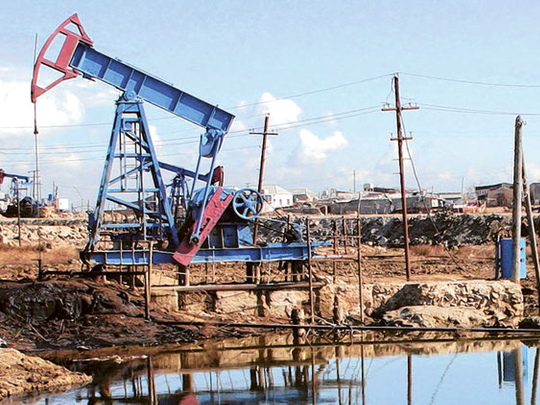
Dubai: The poet T.S. Elliot said in his Waste Land that "April is the cruelest month of the year" but it is not so for oil producers.
In spite of volatility and uncertainty, oil prices soared to levels not seen for thirty months. The price of the Opec basket of crudes started the month at $113.49 a barrel to finish at almost $121.
Although there was a slight fall towards the middle of the month but it was short lived and the average for April is almost $118 a barrel. The year-to-date average is close to $101 a barrel compared to the average for 2010 of $77.45.
The Opec Secretariat finally accepted the fact that its oil demand estimate for 2010 and forecast for 2011 are in fact under-estimates.
In September 2010, Opec was estimating 2010 oil demand at 85.5 million barrels a day while it is now accepting that it was 86.5 million bpd. And while in that same month it forecasted 2011 demand to be at 86.6 million bpd, it has recently raised its forecast to 87.9 million.
These numbers must have had their impact on rising oil prices as they became closer to what other analysts were suggesting especially the International Energy Agency (IEA).
Opec and IEA are now at least very close on the call for Opec oil where in 2010 is estimated at 29.5 million bpd and 29.8 mbd respectively and the forecast for 2011 is 29.9 million and 29.8 million respectively.
Prices, however, were not affected by supply and demand fundamentals as much as they were driven by the crises in Libya and other oil producing countries and the fear that unrest could spread further where more supply disruption could send prices to unprecedented levels.
But oil producers have managed to almost contain the loss of Libyan production by raising their own especially in Saudi Arabia where production went over 9.1 million bpd but soon fell to 8.3 million. Therefore Opec production is almost similar now to what it was before the Libyan outage.
Saudi oil minister Ali Al Naimi recently expressed concern over rising prices and described them as "inflated by speculation" and that based on fundamentals "prices should not be this high" and that lower demand for Saudi oil in March was a "sign of surplus supply".
This has been interpreted by some that the next Opec meeting in June will not change oil production ceiling as there are no buyers of additional oil produced by Opec members over the substitution of Libyan production. There are early reports that Saudi production went down further by 300,000 barrels a day in April.
All this could very well be due to the second quarter normal reduction in demand and as demand kicks again in the second half of the year, it is almost certain that Opec members, especially Saudi Arabia, will raise production again. Fatih Birol, the chief economist of IEA, call for higher production does not seem justified now.
Speculation
There is another reason for the rise in oil prices and that is the enormous increase in the activity of speculators in the gambling casinos of the future markets. Bart Chilton, commissioner of the US Commodity Futures Trading Commission (CFTC), suggested in March that speculators have increased their positions in energy markets by 64 per cent since June 2008, the highest level on record.
This time complains are not just from Opec but from consumers especially in the US. Senator Bernie Sanders in a letter addressed to president Obama urging a curb on oil speculation said "there is mounting evidence that the skyrocketing price of gas and oil has nothing to do with the fundamentals of supply and demand, and has everything to do with Wall Street firms that are artificially jacking up the price of oil in the energy futures markets" and that "illegal behaviour are ripping off the American people again by gambling that the price of oil and gas will continue to go up."
The CFTC is blamed for the delay in submitting its promised regulation to crack down on speculation by imposing "position limits". The new rules were supposed to be submitted by January 22, but delayed in order to collect data.
Even Goldman Sachs, a beneficiary of oil speculation, is suggesting that 20 per cent of the price of crude oil is due to excessive speculation.
While president Obama urged producers to lift oil production, he established a working group to combat fraud or manipulation in the oil and energy markets. But it is not clear whether that will include the futures markets.
Opec may or may not increase oil production but the market woes are somewhere else.
The writer is former head of Energy Studies Department in Opec Secretariat in Vienna












